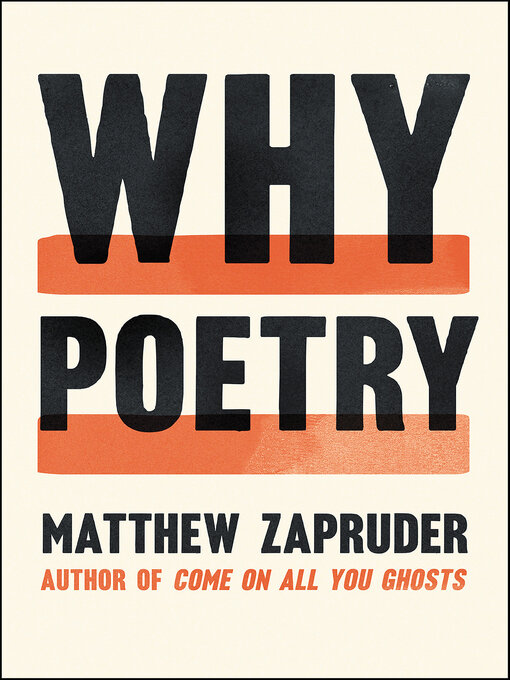An impassioned call for a return to reading poetry and an incisive argument for poetry’s accessibility to all readers, by critically acclaimed poet Matthew Zapruder
In Why Poetry, award-winning poet Matthew Zapruder takes on what it is that poetry—and poetry alone—can do. Zapruder argues that the way we have been taught to read poetry is the very thing that prevents us from enjoying it. In lively, lilting prose, he shows us how that misunderstanding interferes with our direct experience of poetry and creates the sense of confusion or inadequacy that many of us feel when faced with it.
Zapruder explores what poems are, and how we can read them, so that we can, as Whitman wrote, “possess the origin of all poems,” without the aid of any teacher or expert. Most important, he asks how reading poetry can help us to lead our lives with greater meaning and purpose.
Anchored in poetic analysis and steered through Zapruder’s personal experience of coming to the form, Why Poetry is engaging and conversational, even as it makes a passionate argument for the necessity of poetry in an age when information is constantly being mistaken for knowledge. While he provides a simple reading method for approaching poems and illuminates concepts like associative movement, metaphor, and negative capability, Zapruder explicitly confronts the obstacles that readers face when they encounter poetry to show us that poetry can be read, and enjoyed, by anyone.



